3 types of bacteria without which humans cannot exist (9 photos)
However, over time it became clear that bacteria are actively involved in various natural processes. And, moreover, without some of them, modern life simply cannot exist. 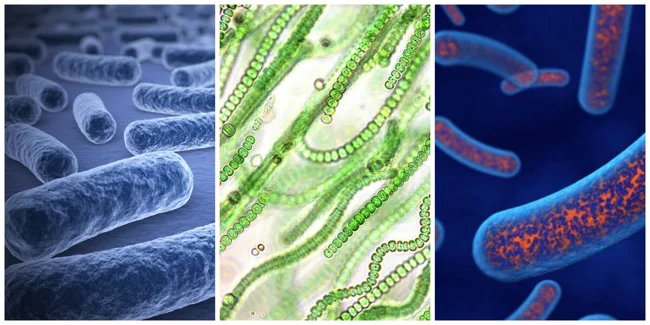
Fermented bacteria, cyanobacteria and azotobacter
Let's look at these living bricks of our universe, on which the foundation of nature rests. And let's start with those who are very important to a person.
Lactic acid bacteria
Just imagine, tens of trillions of bacterial cells live in every person. This is three times more than the number of human cells!
And there are much more beneficial bacteria here than pathogens. Because harmful microorganisms are mercilessly killed. And in many ways, it is the heroes of this chapter who contribute to this. 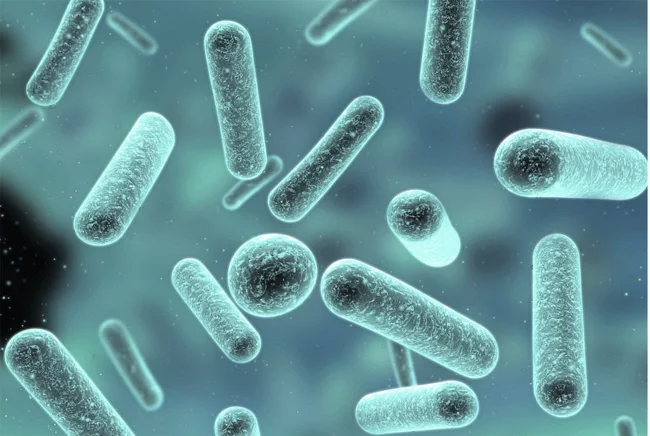
These babies form an impenetrable barrier to pathogens. By killing them or at least reducing their activity
Lactic acid bacteria are able to process organic matter into lactic acid. This property has been actively used by humans to ferment foods. This allows you to preserve products without allowing pathogens to multiply in them. Kefir, yogurt, sauerkraut and many other healthy products are the results of the work of lactic acid bacteria. But this is far from their only benefit.
The first scientist to make a bold assumption about the importance of bacteria for our body was the scientist Ilya Mechnikov. 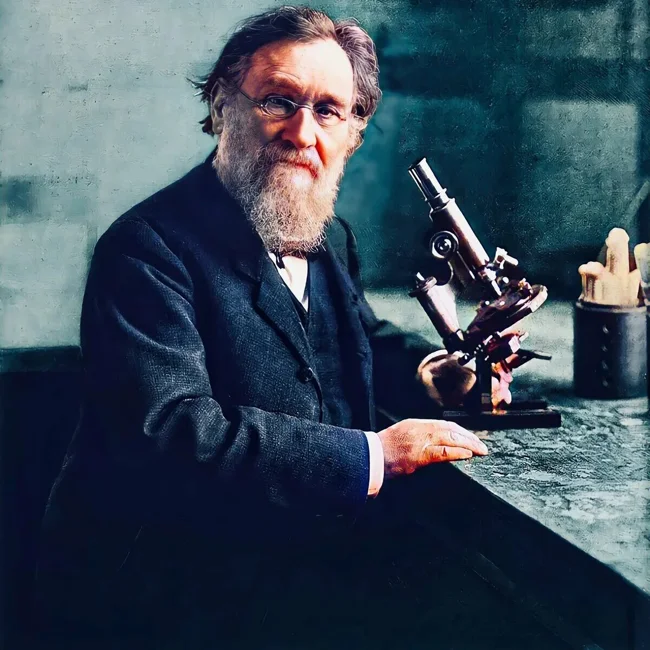
He noted that lactic acid bacteria are extremely important for human health. They help break down foods in the intestines and extract useful substances. Without their help, we simply would not be able to eat some foods - the food would not be absorbed.
The human diet would become much more meager. For example, all grains and protein products would be digested much worse. For example, casein is a very healthy protein found in milk. 
Dwayne Johnson expresses his deep gratitude to lactic acid bacteria, without which he would never have built an impressive torso
Athletes love it very much because it helps renew muscle and other cells of the body. But casein is a complex protein. We can assimilate it precisely due to the activity of lactic acid bacteria.
But the main thing is that they become a barrier to harmful microorganisms.
Lactic acid bacteria guard human immunity. They are part of the microbiota of mucous membranes. They release substances that kill pathogens - for example, hydrogen peroxide. This is a place of open contact between the human body and an aggressive environment. In addition, the abundance of lactic acid bacteria in the intestines has proven properties to reduce bad cholesterol levels.
Cyanobacteria
If a person could not survive without lactic acid bacteria, then without cyanobacteria, living nature in its current complex forms would not be able to survive. 
Cyanobacteria produce the most oxygen on Earth. Flowers, grass and trees familiar to us occupy a modest share in this chain
Cyanobacteria are able to feed themselves through photosynthesis. And, accordingly, produce oxygen. These are the only bacteria that can do this.
According to the latest data, cyanobacteria produce up to 40% of the oxygen throughout the planet! The contribution of trees and multicellular land plants is much more modest. 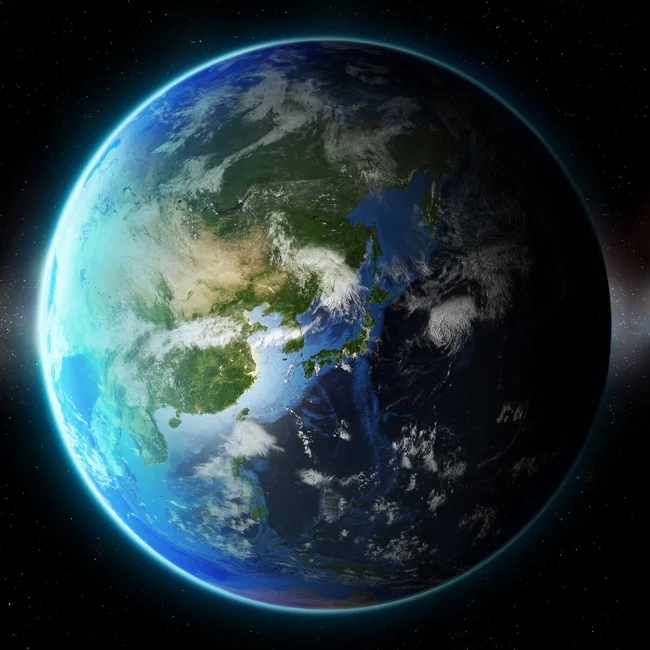
Cyanobacteria saturated the Earth's atmosphere with oxygen. What stimulated the rapid development of life
Cyanobacteria are the main generator of oxygen in nature. In second place are other representatives of phytoplankton in the ocean (i.e. small algae). 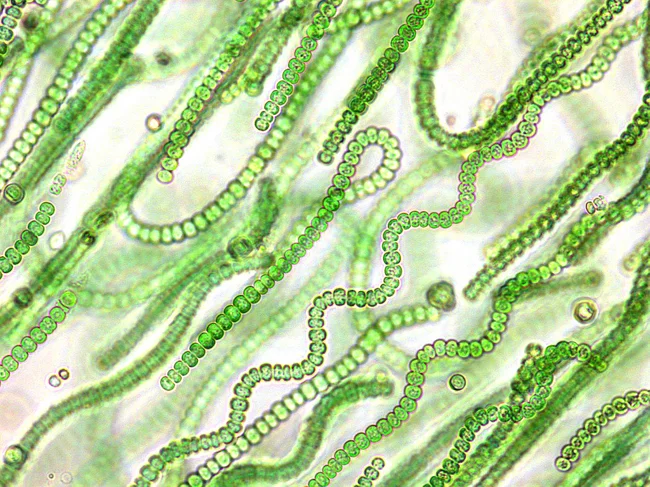
Previously, they were even considered plants and were called “blue-green algae.” They are too similar to other types of small algae. And yet they are bacteria. Since they are prokaryotes in structure. That is, cells that do not have a formed nucleus, as in our cells, as well as the cells of other animals, fungi and plants. Their DNA is also located in the center of the cell, but does not have a nuclear envelope, but is simply located in the cytoplasm.
But, most importantly, it was cyanobacteria that saturated the atmosphere with oxygen more than 2 billion years ago. And over time, this led to the emergence of complex organisms, including humans.
Nitrogen-fixing bacteria
These bacteria help extract nitrogen from the atmosphere and replenish the soil with it. Where it becomes available to plants.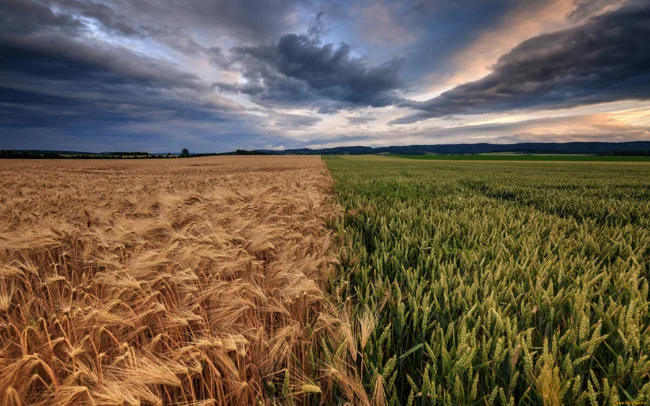
Before the discovery of nitrogen-fixing bacteria, people actively used their properties. For example, they noticed that crops grew much better in soil where peas had previously grown. Subsequently, it turned out that nitrogen-fixing bacteria accumulate on peas, which makes the soil richer.
Plants really need nitrogen, it stimulates their growth.
But they cannot extract nitrogen from the atmosphere due to the specific structure of the molecules of this substance. And it is nitrogen-fixing bacteria that themselves bring this life-forming substance to plants, as Ostap Bender would say: “On a silver platter!” 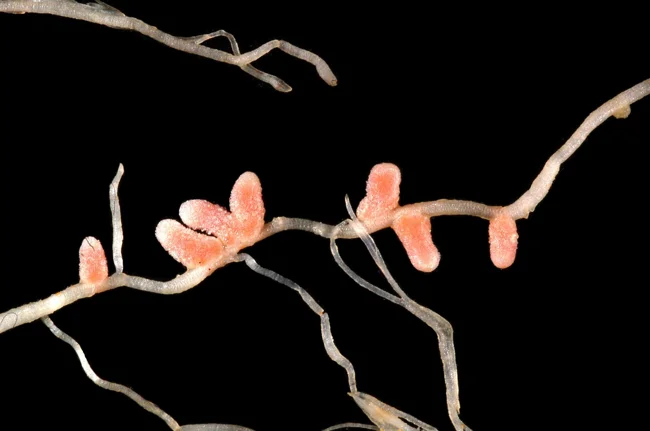
Without these bacteria, the flora on our planet would be very poor. And, of course, there would be no need to talk about any agricultural activity - such complex plants, including trees, would not be able to exist. There would simply not be enough important microelements for them.

